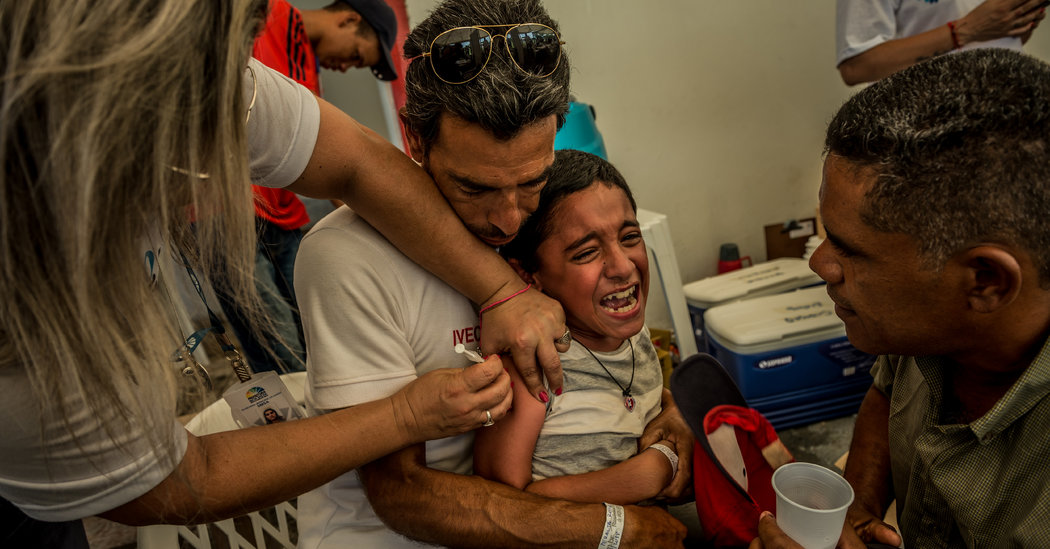
Reported cases of measles worldwide surged by nearly a third last year, partly because parents did not vaccinate their children, health organizations said Thursday.
The increase in measles, a highly contagious scourge that had been nearly eradicated in many parts of the world just a few years ago, was “deeply concerning,” the organizations said in a report on the fight to eradicate measles.
“Without urgent efforts to increase vaccination coverage and identify populations with unacceptable levels of under- or unimmunized children, we risk losing decades of progress,” Dr. Soumya Swaminathan, deputy director general for programs at the World Health Organization, said in announcing the findings.
Measles outbreaks affected nearly all regions, the report said, with the biggest surges in the Americas, the Eastern Mediterranean region and Europe.
The findings reinforced similarly alarming results reported three months ago by the World Health Organization for Europe, which showed that measles had reached the highest levels in two decades across the Continent.
At least 95 percent of a population must have immunity to control the spread of measles, public health officials say. But in several European countries, the figure is 85 percent or less. Health officials have put the blame for the immunity problem partly on parental neglect and the mistaken belief that vaccines can cause autism and other afflictions.
The measles increase in Latin America was partly attributable to an economic calamity afflicting Venezuela, where many public health services have stopped or are mired in dysfunction.
The number of officially reported measles cases in 2017 totaled 173,330, the report said, 31 percent higher than levels in 2016. Still, the number of reported cases last year remained far below the 853,479 reported in 2000.
The disease can cause debilitating and sometimes fatal complications, severe diarrhea, dehydration, pneumonia and vision loss. Babies and young children with weakened immune systems are particularly susceptible.
An estimated 110,000 people, mainly children, died from measles last year, the report said.
The report, “Progress Toward Regional Measles Elimination — Worldwide, 2000-2017,” is a joint publication of the World Health Organization and the Centers for Disease Control and Prevention in the United States.
Dr. Seth Berkley, chief executive officer of Gavi, the Vaccine Alliance, an advocacy group that promotes vaccination in lower-income countries, said the surge in reported cases showed that more efforts are needed to strengthen immunization coverage.
“Complacency about the disease and the spread of falsehoods about the vaccine in Europe, a collapsing health system in Venezuela and pockets of fragility and low immunization coverage in Africa are combining to bring about a global resurgence of measles after years of progress,” he said.

